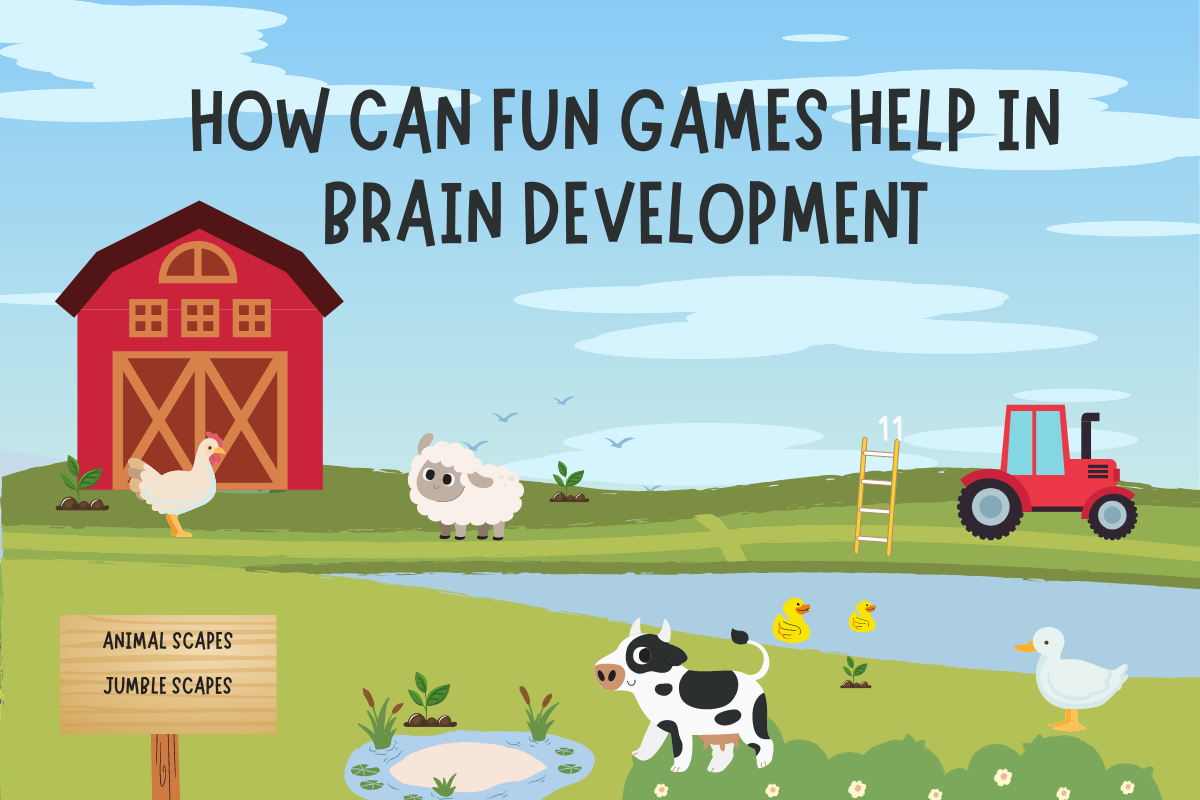How Fun Games Contribute to Brain Development
By~ Scholar Planet
Created At: 02 Jul, 2023

Fun games have long been
recognized as a source of entertainment and enjoyment. However, their impact
goes beyond mere amusement, as research has shown that engaging in fun games
can significantly contribute to brain development. Whether it's solving
puzzles, playing strategy games, or participating in physical activities, the
combination of excitement and cognitive challenges provides numerous benefits
that enhance various aspects of brain function.
1. Cognitive Skills
Enhancement
Participating in fun games
stimulates cognitive skills such as memory, problem-solving, attention span,
and critical thinking. Puzzles, crosswords, and memory-based games exercise the
brain's ability to recall information, enhancing memory capacity. Strategy
games like chess or Sudoku foster problem-solving skills and logical thinking,
requiring players to analyse and make effective decisions. Moreover, video
games that involve complex scenarios and missions can improve attention span
and concentration.
2. Motor Skills Development
Fun games that involve physical
activity, such as sports or outdoor games, contribute to the development of
motor skills. Engaging in sports not only enhances gross motor skills but also
improves hand-eye coordination, balance, and agility. Activities like dancing,
playing musical instruments, or even playing video games that require precise
movements can refine fine motor skills. The combination of physical exertion
and cognitive engagement during these games strengthens the neural connections
between the brain and the muscles, leading to better motor control and
coordination.
3. Social and Emotional
Intelligence
Fun games often involve social
interactions, encouraging the development of social and emotional intelligence.
Multiplayer games, team sports, and board games promote cooperation,
communication, and teamwork, fostering essential social skills. Through these
activities, individuals learn to manage emotions, cope with failure, and
develop empathy and understanding for others. Furthermore, role-playing games
and storytelling games can enhance creativity and emotional expression,
enabling individuals to explore different perspectives and problem-solving
approaches.
4. Stress Reduction and Mental
Well-being
Engaging in enjoyable games
provides a healthy outlet for stress and contributes to mental well-being. Fun
games serve as a form of relaxation and entertainment, helping to alleviate
anxiety and tension. Playing games triggers the release of endorphins, the
body's natural feel-good chemicals, which promote a sense of pleasure and
happiness. Additionally, games that involve problem-solving and overcoming
challenges boost confidence and provide a sense of achievement, reducing stress
levels. Regular participation in fun games can serve as a valuable tool for
maintaining mental well-being and combating the negative effects of stress.
The benefits of fun games on
brain development are undeniable. Therefore, integrating fun games into daily
routines, whether through traditional games, sports, or interactive video
games, can have a profound and positive impact on brain development at any age.
We at Scholar Planet believe in a
fun filled learning experience. Hence, besides quizzes, Olympiad and grade wise
MCQ preparations, we have fun games in our dashboard.
Download
the Scholar Planet app: https://gcapworld.com/download-scholarplanet-app.html
